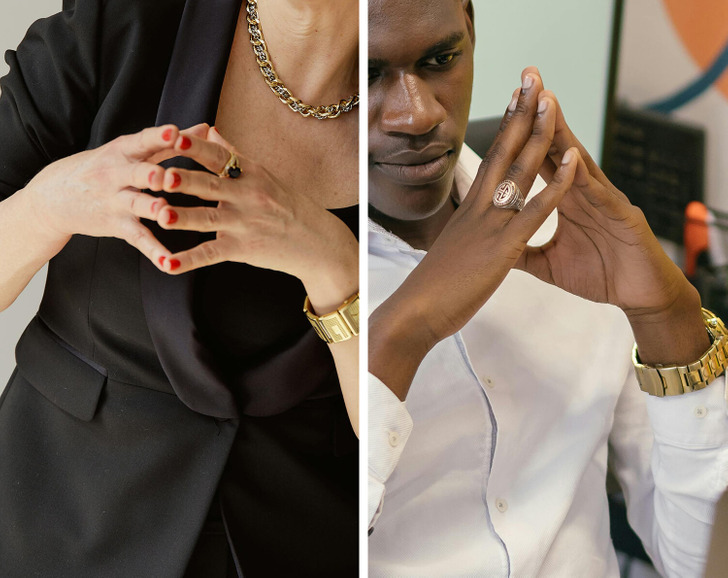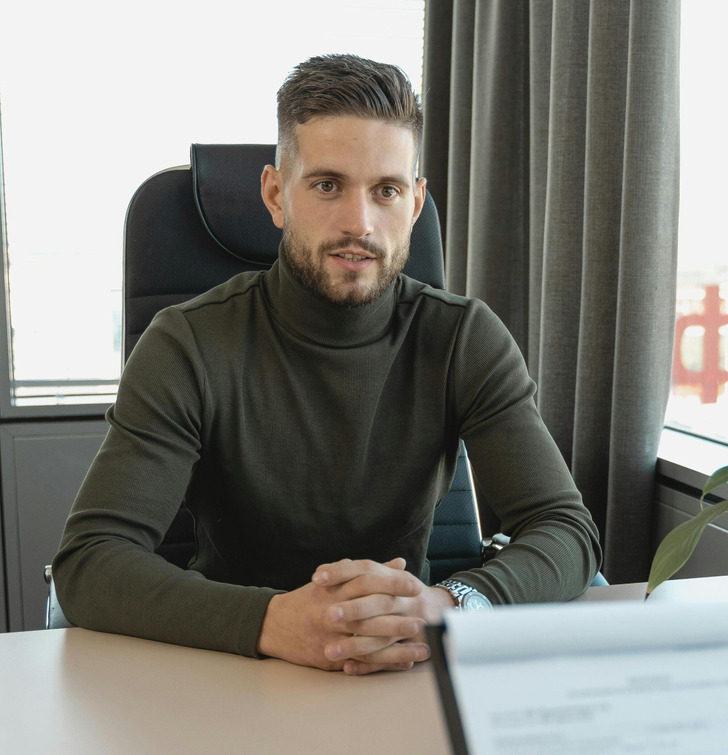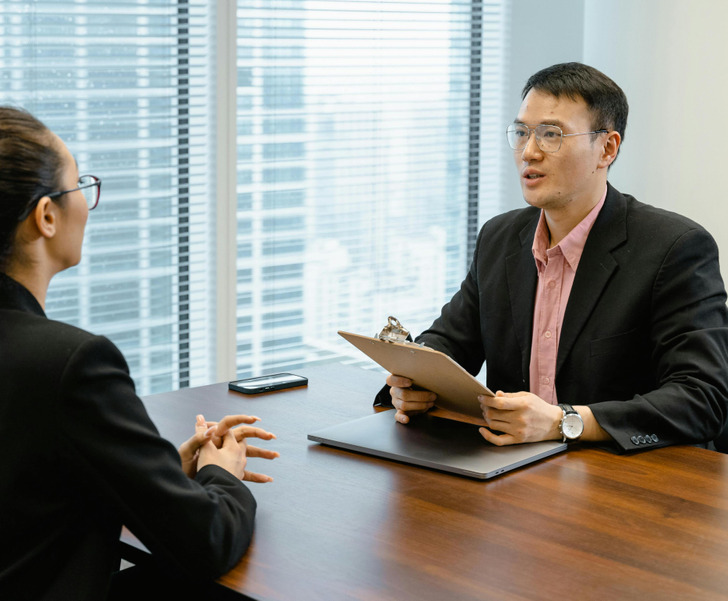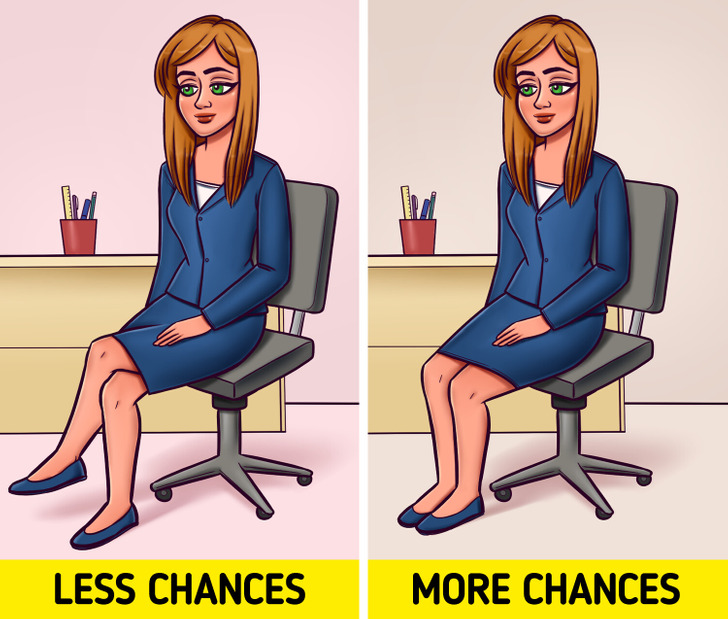Job interviews aren’t only what we say, but also the messages we send. Body language creates a perception about us and can be significant to the decisions recruiters make. Bad posture, nervous hands, and avoiding eye contact might cost you a job you are more than capable of getting. So, let’s see how you should present yourself during a job interview.
Arm placement and posture

Posture is one of the first and main things that recruiters notice about us. When you’re standing straight, you show that you are confident, while slouching means you are reserved and shy. Also, try to control your shoulders, as they need to be back instead of going up, showing signs of nervousness. It’s natural for you to be nervous, and interviewers are aware of that.
However, when you appear too stiff, you might come off as uncomfortable or unfriendly. You may also have a hard time relaxing in your chair, with your answers being rushed. Lastly, when you sit on your chair, avoid leaning to the side, as it may appear like you are not engaged.

Do you often make hand gestures when talking? Not everyone has this trait, so if you do have it, make sure to use it during your interviews. If you aren’t naturally gifted, try to incorporate this feature during your answers to avoid possible fidgeting. When hands stay inactive for too long, and especially in such a stressful situation, you may start biting your nails, crossing your arms, or playing with your hair.
When you are not talking, try to position your hands on the desk in front of you in a neutral position so they are ready to move once you start talking again. You can simply place one palm over the other or hold hands clasped on the desk. This way, you also avoid slouching and ruining good posture.

Eye contact

Maintaining eye contact with your interviewer is pivotal if you want them to take you and your answers seriously. When you avoid looking the other person in the eyes, they may think that you are hiding something or that you are not sure about your answers. Confidence is essential in those first encounters, as it’s a trait you will need to possess for most jobs, too. We understand that eye contact can be hard for many people when you don’t know your recruiter.
However, try to strike a nice balance. You don’t have to keep unbroken eye contact, as you may appear creepy and robotic. Take a few breaks to look in other places. Most people break eye contact when they are asked a question and have to think about it for a second before answering.
Listen and respond

Many people lose control of themselves when they are talking about their abilities and skills to prove why they are the perfect fit for the job. However, you should first and foremost listen actively and empathetically to your interviewer and respond to their questions. They don’t want to check only your hard skills but also your interpersonal and soft skills.
There are two simple tricks you can follow during interviews. First, lean forward just a tiny bit when your recruiter is speaking to show that you are engaged. Also, nod every once in a while to show that you are listening and mentally participating.
Strong handshake

Let’s start by saying that your interview begins the moment you enter the building. Before meeting your interviewer, you have to greet other people, including a receptionist, other candidates, or other employees in the company. You have to make a good impression by appearing confident and polite.
When you finally meet your recruiter, your handshake has to be firm. This one might be well-known by now, but not everyone practices it. A firm handshake shows that you believe in yourself and are ready for what is about to happen. A weak handshake may be perceived as lacking confidence and self-assurance.
Smile genuinely

y wants to interview and work with unpleasant people who rarely smile and always have a negative fog around them. Smiling and laughing, when appropriate, during an interview sends the message that you are a friendly and pleasant person. However, don’t force either of these reactions if you don’t genuinely feel the emotions.
You are not laughing when an interviewer says a harmful joke or when they make a distasteful comment about your appearance. You have to find the right moment to gift them with your smile or laughter.

Job interviews can take unexpected turns depending on various factors. Sometimes, interviewers are weird and sometimes your day begins the wrong way. Hopefully you won’t have to experience anything unpleasant like these people did.